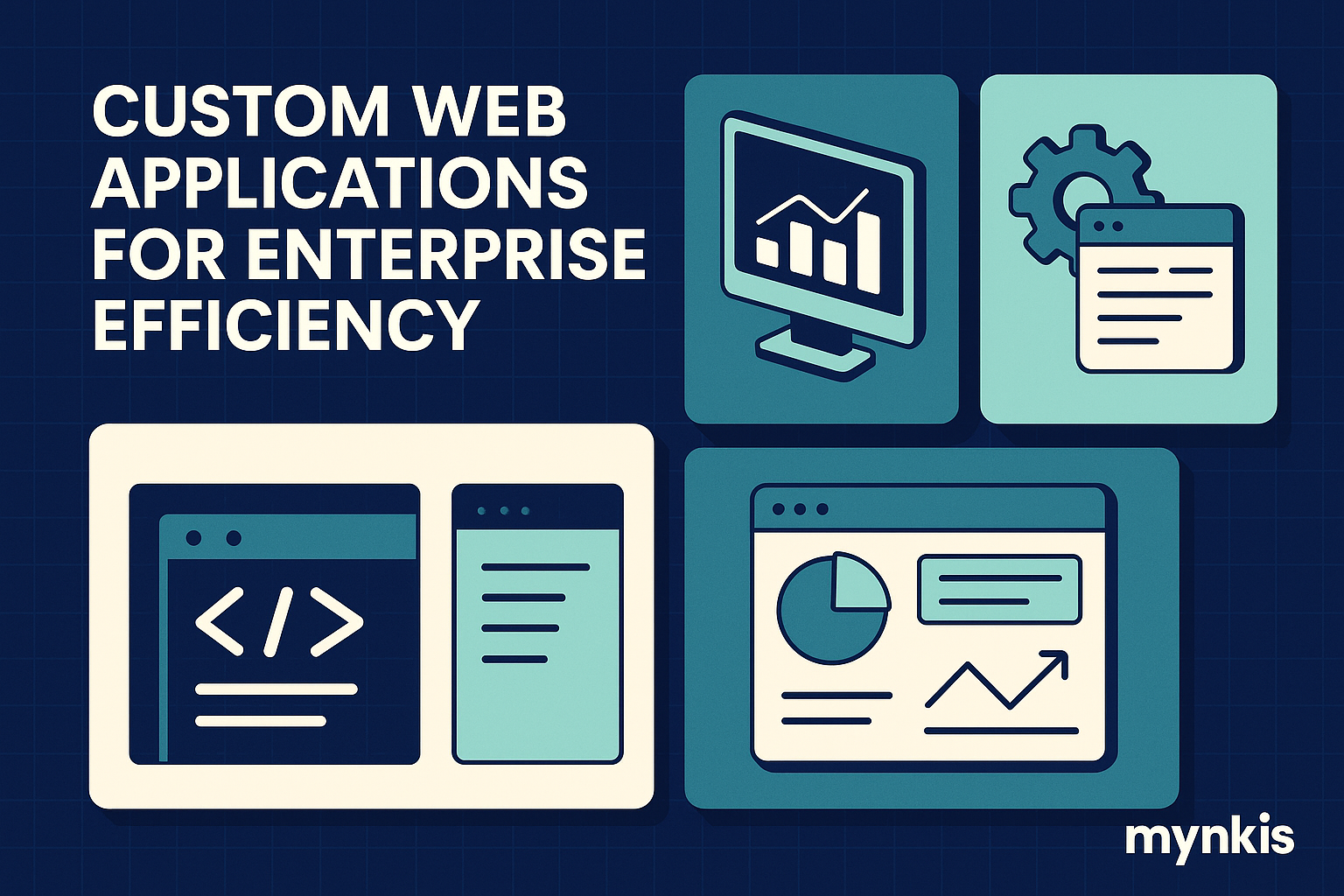Schedule a Demo
The digital landscape is evolving, and enterprises must adapt to thrive. In my work with operations managers, I've seen how custom web applications significantly enhance business operations beyond what off-the-shelf software can offer. These tailored solutions provide unparalleled flexibility, enabling enterprises to align technology directly with their unique processes and goals.
A well-designed web application not only looks attractive but prioritizes the user experience. Based on available research, a superior design can increase user engagement and conversion rates. In the enterprise space, it's crucial that the application flows intuitively, allowing staff to interact efficiently with the system. Key elements like page speed, navigation, and aesthetics all play into user conversion—elements that are perfectly tuned through custom development.
Custom web applications allow businesses to personalize not just the customer experience but the entire operation from internal workflows to external engagements. In numerous projects I've witnessed, custom applications eliminate the clunkiness of outdated, ill-fitting generic systems. A tailored application might integrate specific tools, features, or processes that automate routine tasks, driving productivity upward.
Visibility is vital in the enterprise space. We understand that leveraging organic search traffic can provide a competitive edge. A custom web application offers the versatility needed to infuse SEO tactics directly into its framework—from optimized content to strategically structured data. Each page, feature, and service within the application can be designed with search in mind, creating opportunities to drive natural traffic and generate leads.
When dealing with enterprise-level solutions, security cannot be overstated. I've personally seen the peace of mind custom development brings to executives worried about data breaches. Tailored applications can implement high-level security protocols, ensuring compliance with standards like GDPR or HIPAA, something generic platforms often struggle with.
Enterprise applications must grow as the business grows. What I appreciate about custom development is its inherent scalability. Whether it's handling increasing data loads or integrating with new technologies, custom solutions can evolve seamlessly alongside your business. Organizations need the foresight in their web applications to adopt the latest industry practices and trends without overhauling the entire system.
The demand for efficient booking systems within enterprises reflects broader market trends towards digital transformation. When I consult with business owners, the focus is invariably on conversions. A custom booking engine embedded within your application can boost user conversion rates by streamlining the appointment setting process. It can adapt to varying needs across different departments, whether it's scheduling maintenance visits or organizing client meetings.
Examining real-world applications adds context to these theoretical benefits. I recall a project where we developed a custom CRM with integrated booking capabilities for a mid-sized law firm. The result? Increased appointment consistency and a notable rise in clientele. Or consider the case of a property management company that improved its tenant engagement by thousands of percent with a custom application featuring real-time booking and maintenance requests.
An often overlooked but powerful feature of custom web applications is API integration. In practice, this means connecting the application with various tools and systems external to the web environment, from CRM systems to financial software. I’ve observed tremendous ROI when a bespoke application acts as a centralized hub, accessible and manageable from one unified platform.
Automation has transformed countless workflows, directly affecting the bottom line. Custom web development allows businesses to pinpoint specific areas for automation that benefit them the most. Picture a system where repetitive tasks like invoice generation, data entry, or scheduling are automated—a tailor-made environment ensuring efficiency and cutting down on wasted human hours.
In collaborations, innovation often emerges as the result. Business owners are teeming with creative strategies that they wish to execute but can't quite find the framework for. Custom web application development caters to these bright ideas by providing a blank canvas on which operations can truly match the visionary goals of the c-level executive team.
In the fervor to achieve robust functionality, the importance of aesthetic shouldn’t be forgotten. I find that blending innovative design with smart development bolsters user trust. Engaging visuals with clean, accessible functionality make the difference between a good application and one that propels conversion through great experiences and ease of use.
The web application you choose today won't merely operate as a solution until tomorrow—it's an investment in future efficiency. Balancing immediate functional needs with design that caters to future trends requires finesse. Implementing web design trends of 2023, my clients constantly reminded me of the edge new-age design grants as we worked with their enterprise web applications.
Finding a competent partner is crucial for realizing the vision of a bespoke web application. Professional advice is often critical when navigating through technologies and predicting future needs effectively. When working with a potential developer, it’s about understanding their capacity to translate business challenges into digital solutions and their commitments to uphold your operational integrity and data security.
